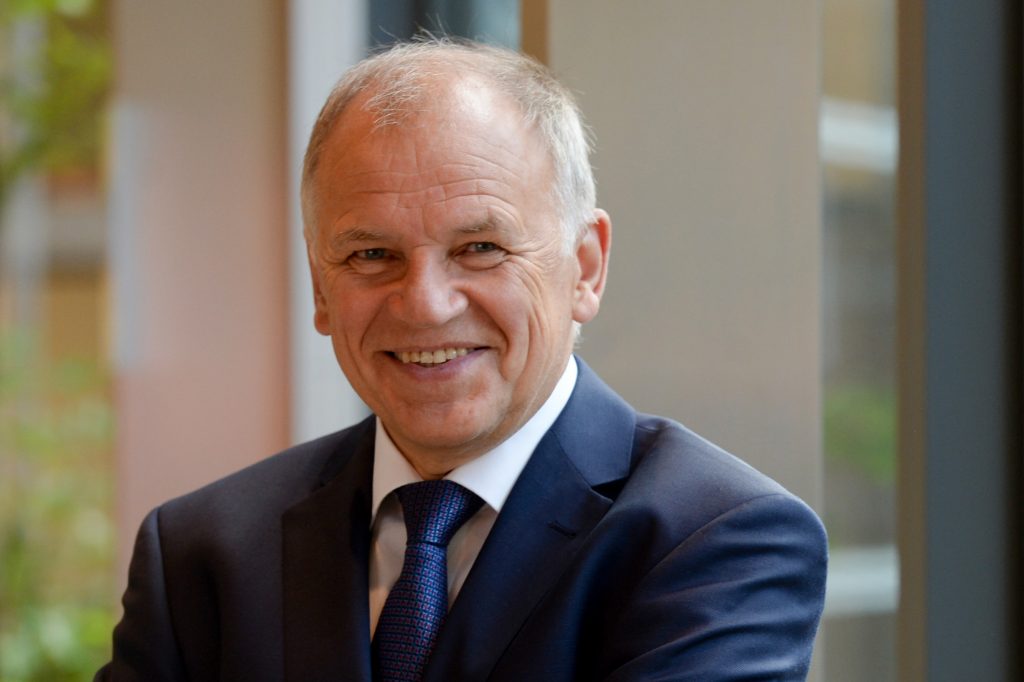Now is the time to strengthen the role of the EU in health policy and to build a European Health Union. This will require appropriate amendments to the EU treaties, writes former European Commissioner for Health and Food Safety Vytenis Andriukaitis in his guest contribution.
“For me, it is crystal clear – we need to build a stronger European Health Union,” declared European Commission President Ursula von der Leyen in her first annual State of the European Union (EU) address in September 2020. Indeed, the COVID-19 pandemic has revealed the limited preparedness of Member States and the European Union to act swiftly and mitigate the negative impact of health emergencies – not only on the health of the people but also on economic growth, employment, fiscal balances, international trade and free movement. It has inspired a rethink of the role played by health in European politics, economies and societies. Until the COVID-19 pandemic, health remained a minor topic in the European institutions, the European Semester and the EU budget. We must now seize the window of opportunity that has opened.
What is necessary in order to strengthen the role of the EU in health policy noticeably? In the first place we need to elaborate a concept of an EU Health Union, going beyond a narrow proposal focused on crisis preparedness and response. It must build on the EU Pillar of Social Rights and the commitment of the EU to implement the Sustainable Development Goals. This means a health union that would promote well-being for all people of all ages, guarantee universal health coverage for all, and leave no one behind. The differences in average life expectancy between Member States that range from 73.6 to 82.8 years should be decreased, and medical innovations and high quality care should be accessible for all at short notice.
Act together more effectively
Presently, health policy is in principle a core Member State competence. The European Union is only empowered to coordinate or supplement Member States’ actions. The task is not to make the EU and its institutions responsible for all health matters but to find the right form of integration and cooperation for the EU and its Member States to act together more effectively in health during “normal” as well as pandemic times.
Different scenarios can be envisaged in order to achieve this. In all probability, it will not be enough to simply upgrade current institutions such as the European Medicines Agency (EMA) and the European Centre for Disease Prevention and Control (ECDC) as well as fine-tune the existing instruments of health policy. Instead, the status of health policy should be strengthened in the Treaty on European Union and the Treaty on the Functioning of the European Union, giving the EU some competence for health policy in very concrete areas, while preserving the principle of subsidiarity as a mainstay.
Health as a value in itself
In the European treaties, health is currently only considered a necessary prerequisite for a functioning economy. Should Europe wish to work for health as a value in itself, for health as a state of complete physical, mental and social well-being and not merely the absence of disease or sickness, a health union should be included in the Preamble of the Treaty on European Union in parallel to the internal market and an economic and monetary union. To be specific, Part 3 of Article 3 should be amended with the sentence: “The Union… …shall promote universal health coverage by establishing a health union.”
Without being more ambitious today, we will miss this window of opportunity to build a health union for tomorrow that lies beyond the internal market, beyond this narrow paradigm that is unfit for the 21st century. Former EU Commission President Jacques Delors warned that a lack of solidarity poses a mortal danger to the EU. Lack of solidarity in health is also a mortal danger. Let us be inspired by this insight and let us be brave in building a strong and genuine European Health Union.

Vytenis Povilas Andriukaitis (69) was a practising surgeon for more than 20 years. He is co-author of the Constitution of the Republic of Lithuania and was Minister of Health of Lithunia from December 2012 to July 2014 and European Commissioner for Health and Food Safety from November 2014 to November 2019. He led the Lithuanian delegation to the Convention on the Future of Europe and is WHO Special Envoy for the European Region of the World Health Organization.
